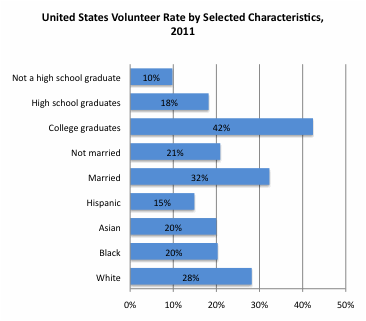Happy 100th, You Good-For-Nothing Moms!

In 2014, America observed Mother’s Day for the 100th time since Woodrow Wilson signed the act that officially placed it on America's calendar.
Of the 85 million mothers in America, about 5 million are stay-at-home moms, society’s great good-for-nothings.
Unpaid work does not count in economic statistics, so moms officially contribute nothing to the economy – unless they also take a paying job. We all know this is nonsense, but there it is. Officially, motherhood is worthless. The numbers don’t lie, right?
 Jeff's Mom
Jeff's MomEvery year at this time, a small flurry of articles, not all of them silly, discuss the dollar-equivalent value of motherhood. Mothers aren’t paid for being moms – but if they were, what would be their base pay? Should we believe the insure.com estimate that Mom could be outsourced for about $60,000 per year? (Dads, knock that smug look off your face. The same source pegs your dollar-equivalent annual value around the house at about $20,000.)
The usual reaction to these articles is a wave of the hand. How silly, right? Some things have price tags. Those things exist in the world of money. Other things don’t have a clear price, and they exist in the world of stuff-we-take-for-granted.
Like moms.
Money is valuable for what it can buy, but not everything valuable is for sale. Savvy teachers and school leaders are aces at recruiting help for free. Many moms (and some dads) are eager volunteers. They bring commitment and skills of tremendous value to the kids, schools, and programs they support. They tutor students who need help, including their own. They organize activities. They chaperone field trips. They organize fundraisers. They help in the office, or the library, or at the curb. They translate for parents who have trouble with English. They support after-school programs or coach teams.
...this river of unpaid, mostly mom-powered volunteer capacity flows unevenly through America’s communities.
Unfortunately, this river of unpaid, mostly mom-powered volunteer capacity flows unevenly through America’s communities. In the most privileged communities, parents are eager, able, and available to help. But in places where moms and dads are just scraping by or struggling with English, it can be difficult even to arrange parent-teacher conferences.
 This is more than just an impression, or a stereotype. In 2011, a survey by the Bureau of Labor Statistics reported major differences in volunteering activity by ethnicity, marital status, and educational attainment.
This is more than just an impression, or a stereotype. In 2011, a survey by the Bureau of Labor Statistics reported major differences in volunteering activity by ethnicity, marital status, and educational attainment.
Volunteerism is a valuable resource everywhere, but it is unevenly distributed. Some communities and schools are in a better position than others to recruit moms and dads and put their skills to work for kids. This difference plays a very real and usually overlooked role in the gaps between schools of privilege and schools of poverty, a topic examined in Lesson 8.11 of Ed100.org. Addressing this disadvantage is part of the reason why many states, now including California, allocate extra funds to schools where there are concentrations of students in poverty and with limited English skills.
Mother’s Day is a good time to remember that while money can buy things of value, not everything of value has a price.
Join the Discussion
- How does your school community celebrate Mother's Day? Will it do something special for the 100th Mother's Day?
- What is the value of the volunteer resources in your school? How could your school's parents play an even more valuable role than they do today?
Jeff Camp is the primary author of Ed100.org. He co-chairs the Education Circle of Full Circle Fund, an organization of “good for nothings” in the San Francisco Bay Area. Full Circle coordinates small teams of volunteers working in support of great nonprofit organizations that need a little help to get to the next level, whatever that may be. Ed100 is an online resource for people who want to learn how to make education work better, especially in California.
A version of this post first appeared on EdSource in 2008.
Etiquetas de esta publicación
Todas las etiquetas
Academia Khan Acoso acreditación Actitud Administradores Agallas Álgebra Ambiente escolar Aprendizaje Aprendizaje Ampliado Aprendizaje basado en proyectos Aprendizaje socioemocional Artes Asistencia Asociación de Maestros de California Asociación de Padres y Maestros Atención plena Ausencias Bonos de obligación Brecha de desempeño Burbank Calidad Calificación de escuelas Calificaciones en pruebas Cambio Canción Carol Dweck Carrera Cerebro Certificación CHAMP Ciencia Cierre de escuelas Civismo Comparaciones nacionales Concurso Consejeros Consejo escolar Control local Costo de educación Creatividad Crecimiento económico Crucigrama CSBA Currículo común cursos de estudios étnicos Datos Después de clases Día de la Independencia Diálogo dislexia Distritos Diversidad Dotado DREAM Act EACH EdPrezi EdSource EdTech Educación bilingue Educación del carácter Educación especial Educación religiosa Educación sexual Educación universal Elección Elección de escuela Enlaces guía Equidad Escasez de maestros Escuelas católicas Escuelas chárter Escuelas comunitarias Escuelas en casa Escuelas Magnet Escuelas privadas Escuelas religiosas Esfuerzo Estándares Estudiantes en riesgo Estudiantes que están aprendiendo inglés estudiantes sin hogar Estudios étnicos Evaluación Evaluación nacional de progreso educativo Éxito Federal Filantropía Financiamiento Financiamiento local Fondos por categorías Fundaciones educativas Ganadores Gastos Gobierno local Gráfica Grupos de presión Guía para padres líderes Historia Horas de oportunidad Huelga Humanidades Impuestos Impuestos a la propiedad Impuestos prediales Índice de desempeño académico Indignación Indocumentado Infraestructura Iniciativas Instalaciones Internacional Investigación Jerga Kindergarten La Ley Brown LCFF Lectura Ley Cada Estudiante Triunfa Ley Que Ningún Niño Se Quede Atrás Liderazgo Límites de distritos Litigación Lotería Maestros mantequilla de cacahuate Mapa Mapa del sitio Marcador Matemáticas Medios de comunicación Mejoramiento Continua Mito Mitos Motivación estudiantil Negociación colectiva Negocio Niñez temprana Noticias falsas Nutrición Organizaciones de gestión para escuelas chárter Padres Pandemia Participación de los padres Pedagogía Pensiones personalizado PISA Plan de responsabilidad de control local Planificación Plantilla Población Pobreza Política Política federal Políticas Premio Prescolar Presupuestos Prezi Proposición 13 Proposición 98 Propósito de la educación Pruebas Reclutamiento de maestros Reforma Requisitos ag Responsabilidad Resumen del año Retención de maestros Rigor rompecabezas Rúbrica de evaluación Salario de maestros Salud Salud mental Se necesita ayuda Serrano vs Priest Sindicatos Sorteo SPSA STRS Sueño Suicidio Superintendente Suspensiones Tablero Talento Tamaño de clases Tareas escolares Tasas de graduación Tecnología Tecnología en la educación Tiempo dedicado a la tarea Tiempo en la escuela Trump Universidad Vacunación Vales Valores Vapeando Verano Vídeo Voluntariado Voluntarios Voto Voz del estudiante¡Compartir es vivir!
Restablecer contraseña
Buscar aquí en el contenido del blog y todas las lecciones.
Iniciar sesión con correo electrónico
We will send your Login Link to your email
address. Click on the link and you will be
logged into Ed100. No more passwords to
remember!














Preguntas y comentarios
Para comentar o responder, por favor inicie sesión .